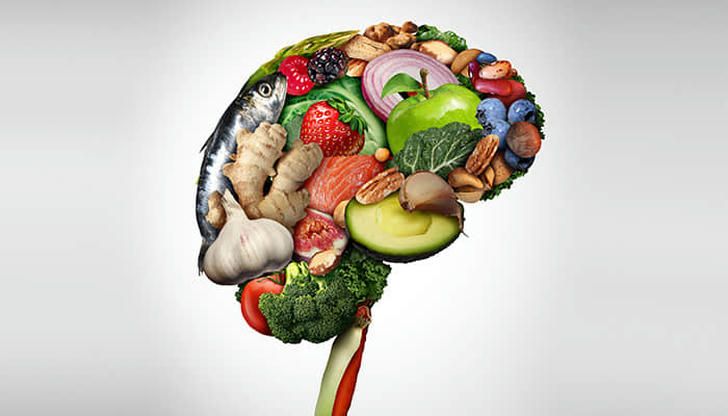After 60s? Here’s 5 Cognitive Health & Brain Longevity Tips as You Age
Advertisement
5 Great ways about how to keep your brain young

Brain is literally the most important organ in human body. It manipulates the overall control of many aspects of acting, thinking, organizing, making decisions and much more. Brains start to age after we turn 30 and 40, when cognitive abilities such as processing speed and memory start to decline. Many may not realize or even defy that they are having age-related cognitive decline. The good news is that, there are some simple ways you can do to slow the impairment and keep your brain young for many years.
Changes that occur to the brain at 60s

As we age, changes occur in all parts of the body, including the brain. Some certain parts of the brain start to shrink in our 30s and 40s, and till 60s, the shrinkage rate will increase even more. Like wrinkles that begin to appear later as we get older, the appearance of the brain also begins to change. Below are what some other changes may happen after 60s:
Brain mass can decrease with age, especially those important part for behavior and emotional controlling can shrink more than other areas. In certain brain areas, communication between neurons (nerve cells) may not be as efficient. Blood flow to the brain may decrease. Inflammation that occurs when the body responds to injury or illness may increase.
Overall, it does come with more difficult for older individuals to act normal as the brain ages. Our mental functions become less nimble and flexible, and many aspects of our memory get a little worse… This can be discouraging news to many people. However, there are some things you can do to help keep your brain young and preserve your cognitive function.
Move your body

A study from Columbia University has found that those who exercise regularly tend to perform better in cognitive and memorial test. Multiple researches show that people who are physically active are less likely to experience a decline in their mental function and have a lower risk of developing Alzheimer’s disease. So one of the essential ways to increase brain longevity is getting exercise on a regular basis.
Regular exercise stimulates the development of new nerve cells and increases connections between brain cells, which helps delay cognitive decline and dementia effectively.
Try regular activity such as walking, biking and other exercise for 30-60 minutes each time, and keeps your heart healthy and blood pumping to the brain.
Eat smarter and get healthier

What you eat matters to your brain health. Mediterranean diet has been proved effective to boost brain health, as well as lowering the odds of Alzheimer's disease. Mediterranean diet is a diet rich in omega-3 fatty acids, low in saturated fat, full of the nutrients found in leafy green vegetables, along with whole grains. It is also the best diet for people who have heart disease as Mediterranean diet contains healthy fat that can decrease your risk of coronary artery disease.
Get plenty of sleep

Sleep is vital for the brain to function properly. The fact is, sleep helps the brain to recover from the daily stress, increase memory and learning abilities, build new neural pathways, reduce anxiety, and strengthen your immune system. Also, lack of sleep can cause serious issues like decreased attention and concentration, impaired judgment, increased risk of accidents and serious health issues. Lack of sleep is even more problematic as you age. In fact, sleep deprivation is one of the leading risk factors of cognitive impairment, including Alzheimer’s disease. So, make sure you get at least 7 hours of sleep per night to keep your brain healthy.
Stay mentally active

Human brain is not like your computer that can be programmed with specific tasks. That’s why, you should be mentally active. Not only it helps to increase your brain health, but it’s also essential in keeping your mind sharp as you age. You can increase your mental activity by joining a sport, reading books, solving puzzles, doing puzzles, learning a new language and strengthening your brain with brain games. You can also try meditations that can help to reduce stress and promote positive thinking, which can positively affect your mood and brain health. Keep in mind that you don’t need to be obsessed with being active all the time. Just keep doing something new every day and you will stay mentally active.
Be social

Another important thing to keep your brain healthy is getting yourself socially involved. It’s important to get enough social connections while you’re young to prevent depressive symptoms and increase inflammation that may lead to cognitive impairment later in life. Study has shown close association between older adults who regularly hang out with friends, volunteer or participate in classes or clubs have healthier brains than those who are alone. When you’re socializing, the function of receive and respond in your brain get trained.
Social activities are not only limited to people you know. You can also socialize with your pets, plant, and much more. So, find the things that you can do to make a new social connection and make friends with them. You can also try mind-reading games or cognitive exercises to boost your social skills. Whatever you decide, try to make social activities a daily part of your life.



